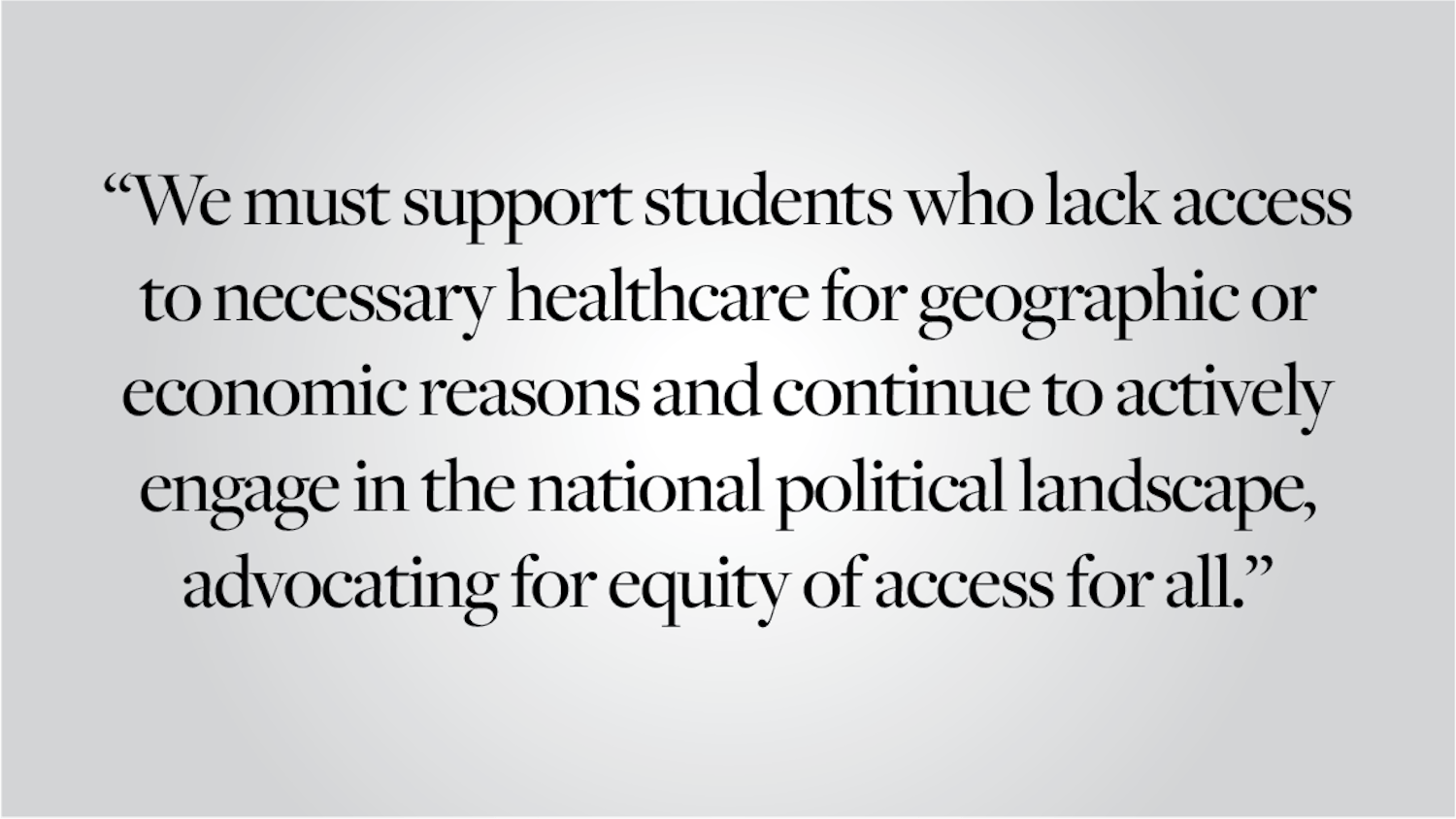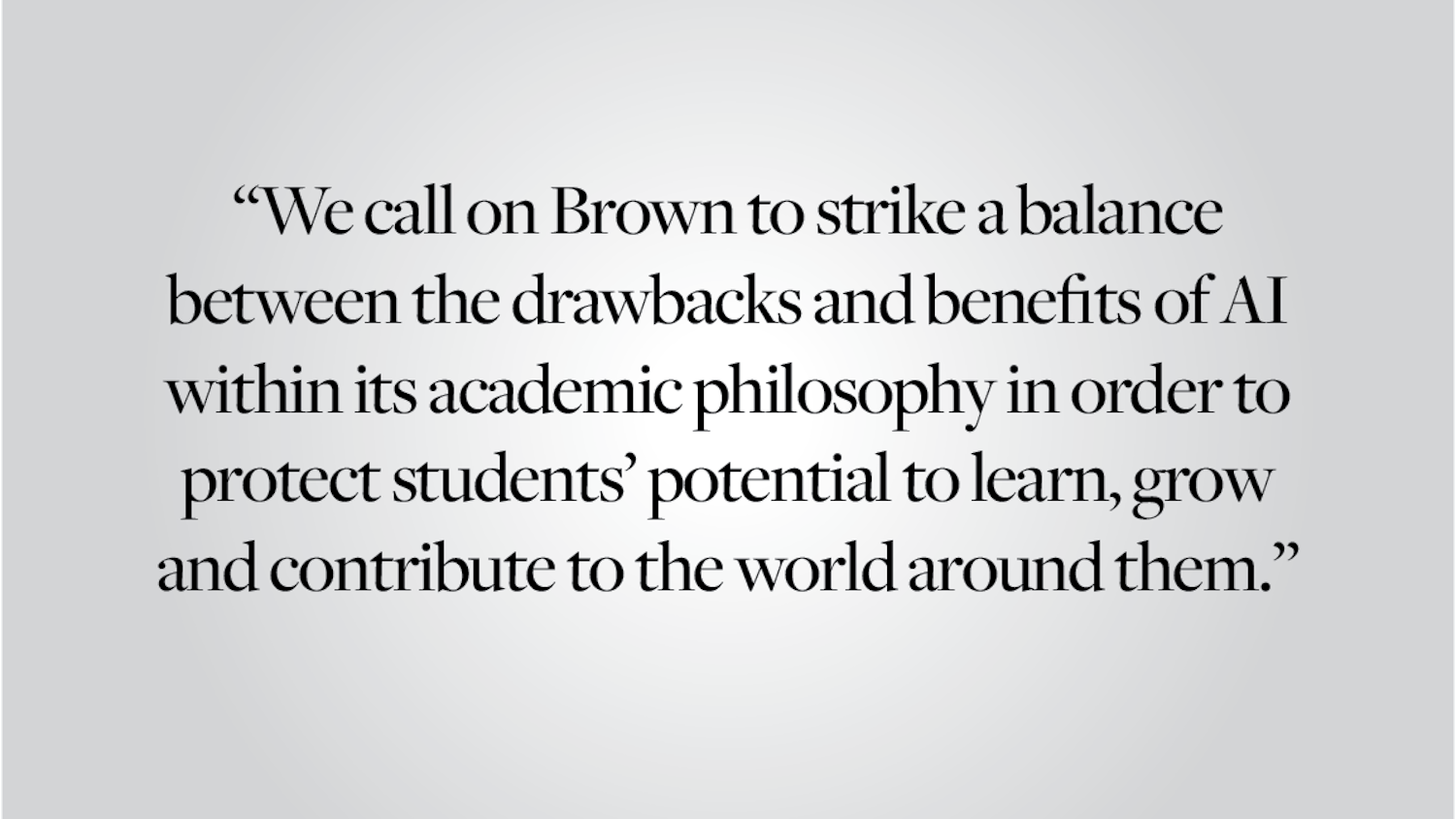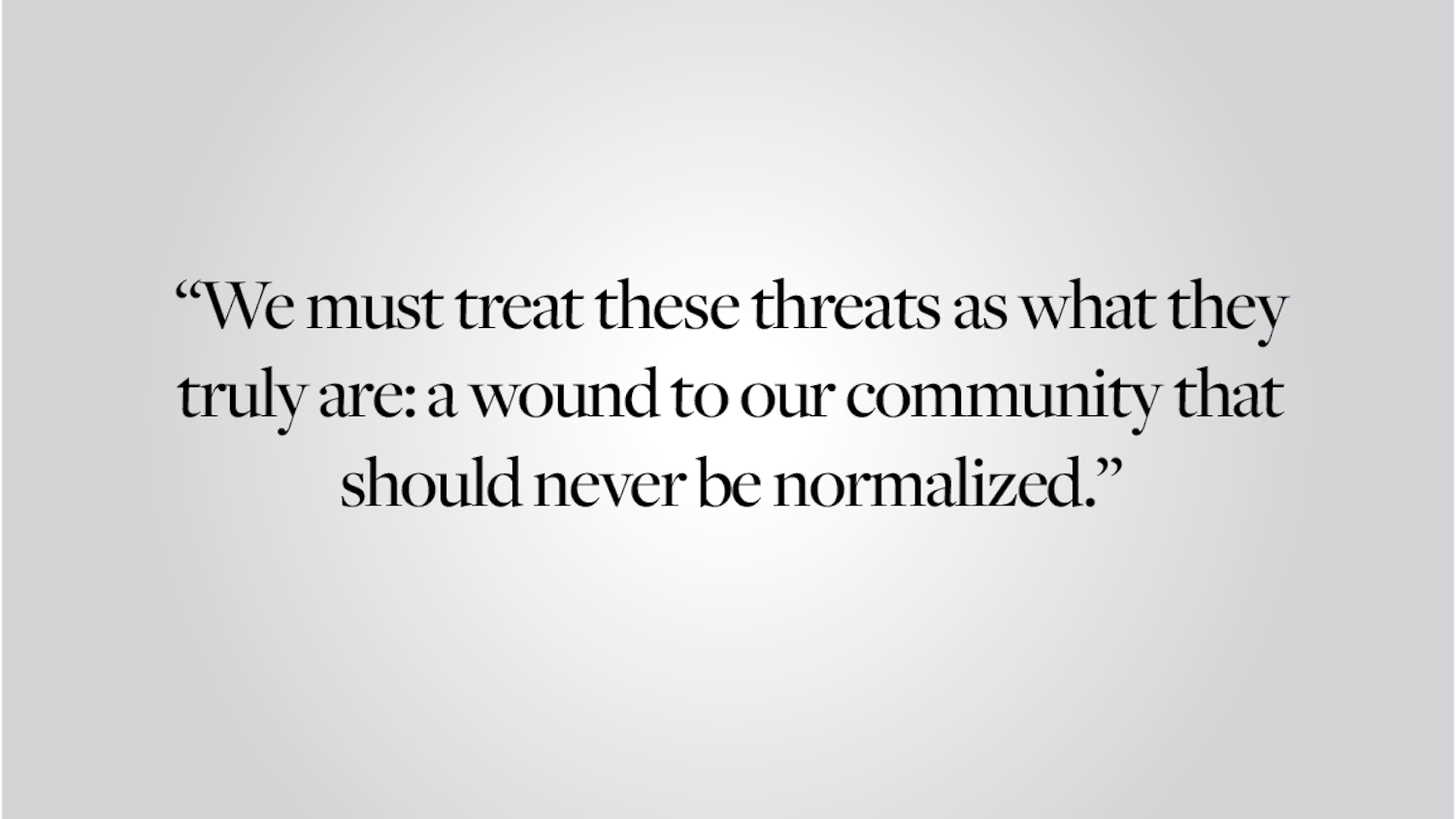Brown should strongly consider moving up the deadline for the declaration of concentrations during sophomore year. Because an earlier deadline would not presume students have a total plan for the future, students would realize that one’s concentration does not define one’s life path or personality. Rather, it is a succinct plan to complete education requirements. Ideally this earlier deadline would be paired with a routine check-in to see whether that plan is working, and if it isn’t, to allow the student to change it. A concentration plan ensures that students graduate. It opens a world of possibilities, and it is flexible, changeable and just another step toward maturing as a student.
A February deadline, for example, would allow students to consider their choice under much less stressful circumstances compared to the current deadline, which falls during midterms and pre-Spring Weekend excitement on April 1. Though the Undergraduate Council of Students has tried to increase advising before the deadline by publishing a list of pre-concentration advisers — faculty members whom students may approach for input if they wish — the whirlwind of stressors may cause students to avoid concentrations that they want because they are feeling strained at the moment in classes that a particular concentration of interest might require. One might be reluctant to declare chemistry while studying for an organic chemistry midterm.
Undergraduates should also remember that concentrations can be changed at Brown more easily than at most colleges. Students meet an adviser and submit a new request on Advising Sidekick. As long as one has enough time and credit slots left to complete the new concentration’s requirements, switching remains an option until Nov. 11 of their seventh semester. And when a good case can be made, deans may allow some wiggle room at their discretion. Independent concentrations take more explanation to swing but are still doable.
Yet this raises a larger point: The essays on ASK, which vary by concentration, are largely projective and ask people to lay out a narrative of what they want their Brown education to be as a sophomore. Predicting and deciding our college career as sophomores is a difficult task, and advocating that it be moved to February may seem to make light of a what many students consider a serious, soul-searching exposition of what they feel they will accomplish later and who they will be. But it doesn’t need to be such a big deal.
The overemphasis on one’s narrative of the education to come seems disingenuous. Most students do not interview professors or seek out available resources before writing the essays, and ASK essays are never referred to after concentrations are approved. Because they are functionally stressful formalities, we recommend striking them down in length, making it perhaps five short sentences about how the student tentatively plans to complete the concencentration’s requirements during their time at Brown, semester by semester. This is all that is needed, not an expose to be labored over like a college application. If it’s concrete and simple, it will be helpful. Declaring is just a step forward that should orient students, gently, toward the future.
And if the University could take some of the stress out of the declaration process and acknowledge that it is nothing more than a semi-permanent schedule to help students graduate with a degree, they can go back to doing what Brown helps them do best: learning.
Editorials are written by The Herald’s editorial page board: its editors, Alexander Kaplan ’15 and James Rattner ’15, and its members, Natasha Bluth ’15, Manuel Contreras ’16, Baxter DiFabrizio ’15, Mathias Heller ’15 and Aranshi Kumar ’17. Send comments to editorials@browndailyherald.com.




